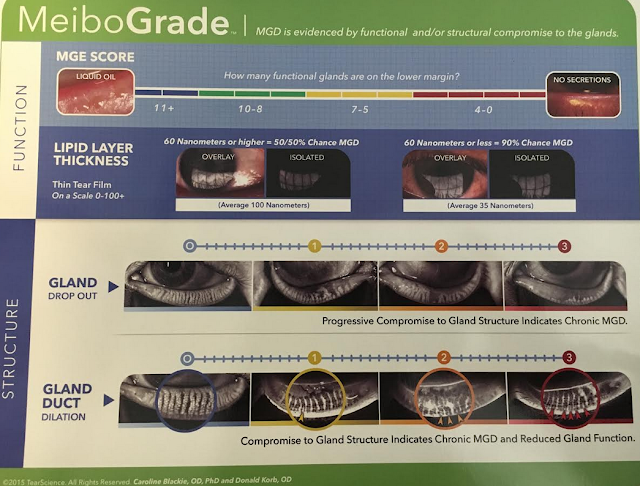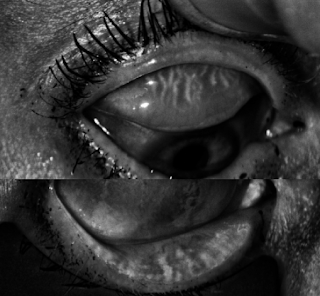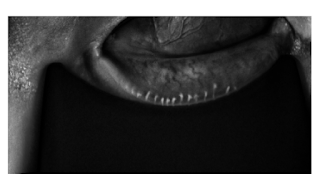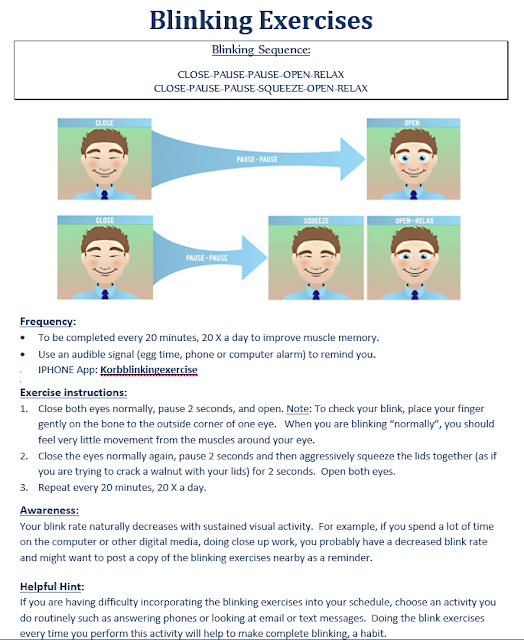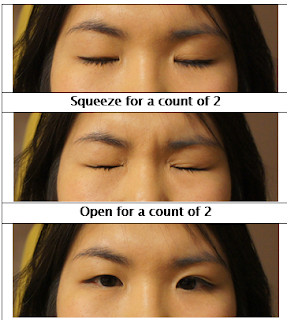BLINKING EXERCISES
History of Blinking:
Eye doctors and surgeons did not know the importance of “blinking properly” in healthy patients until whole groups of people became addicted to their iphones and computers.
Since then, we have seen a huge rise of dry eye symptoms and dry eye pathology under the microscope in many patients, in particular children who spend many hours a day on a device. Similarly, multiple studies have now been published in good peer reviewed journals demonstrating that people blink less and do not fully close their eyes as they should when they are staring at a computer or similar device.
Why is Blinking Important?
Blinking requires the use of the Muscle of Riolan to squeeze the meibomian glands that produce the oily part of each tear we make. The oil of the meibomian gland is essential to preventing quick evaporation of our tears which leads to reflex tearing, redness, burning, and future inflammation of the important cells on the surface of our eye. If you do not believe this oil to be important, check out this quick video which tries to prove it visually (the video shows what happens long term to water/aqueou that is combined with oil versus water that is not protected by oil): https://vimeo.com/159847083
If the the meibomian gland is not properly squeezed hundreds of times per day, the orifice of the gland gets clogged. If the orifice of the gland gets clogged (by blepharitis/bacteria or mites on eyelashes, improper blinking, internal inflammation), the oil gland gets backed up and scar tissue starts to form in the gland. If the gland is not milked of its precious oil, it starts to produce less oil over time. A scarred gland will sometime scar completely and disappear from imaging studies which show the oil inside the gland. Once a gland is fully scarred, it will never come back to function properly.
Thus blinking help us milk our oil glands.
Also blinking likely removes inflammatory cells present on the surface of they eye and around the meibomian gland orifice which leads to chronic inflammation and thus scar tissue.
As you read this, I hope you have been blinking and closing your eyes between paragraphs. If you did, I am impressed as most people do not.
Milking the gland in order to produce more milk is a well known biological phenomena. It translation to the meibomian gland oil is only recently being fully understood.
With the advent of the LipiView which for the first time images Meibomian Glands, we can now see the danger of loosing these glands permanently.
Below is a grading scale of Meibomian Gland Anatomy. On the very left is a normal Meibomian Gland Structure: the glands line up like piano keys.
As we move to the right you can see the glands beginning to scar (the white blurs) and then continuing to disappear.
NORMAL————————————————–>ABNORMAL
NORMAL————————————————–>ABNORMAL
Examples of Patients:
In real life, here is a patient who has had dry eye symptoms and signs for years. You can see that her glands are disappearing.
This patient is a teenager who had radiation and chemotherapy for a tumor around his eye. The radiation though affected both eyes and destroyed his meibomian glands in both eyes.
For everyone, we recommend Blinking and taking Full Blinks!
Below are examples of blinking exercises which are mostly a reminder to close your eyes fully frequently.
BLINKING EXERCISES
Poor blinking
habits may frequently inhibit the improvement in meibomian gland function
resulting from LipiFlow treatment. To prevent this and to obtain maximum
results, blinking exercises must be performed at regular intervals throughout
the day.
habits may frequently inhibit the improvement in meibomian gland function
resulting from LipiFlow treatment. To prevent this and to obtain maximum
results, blinking exercises must be performed at regular intervals throughout
the day.
Blinking is
usually thought to be involuntary, and not requiring attention. Desirable or
good blinking requires that a high percentage of blinks are complete, where the
upper lid contacts the lower lid. Good blinking must also be adequately frequent.
usually thought to be involuntary, and not requiring attention. Desirable or
good blinking requires that a high percentage of blinks are complete, where the
upper lid contacts the lower lid. Good blinking must also be adequately frequent.
Poor blinking
habits are acquired from a number of activities, especially those that require
moderate concentration, e.g. computer use, video games, reading and stress.
Fortunately, good blinking habits can be achieved through proper exercises, which
have a 30-year history of success.
habits are acquired from a number of activities, especially those that require
moderate concentration, e.g. computer use, video games, reading and stress.
Fortunately, good blinking habits can be achieved through proper exercises, which
have a 30-year history of success.
The goals of
blinking exercises are to minimize poor blinking habits and to train good
blinking habits. There are two key principles.
blinking exercises are to minimize poor blinking habits and to train good
blinking habits. There are two key principles.
1. The upper lid must
be taught to contact the lower lid to achieve a complete blink. Partial
blinking, where the upper lid during the downward phase of the blink does not
touch the lower lid, results in not wetting the ocular surface optimally or
promoting secretion. A serious consequence is the obstruction of the Meibomian
glands, leading to Meibomian gland dysfunction (MGD) followed by an increasing
cascade of dry eye.
be taught to contact the lower lid to achieve a complete blink. Partial
blinking, where the upper lid during the downward phase of the blink does not
touch the lower lid, results in not wetting the ocular surface optimally or
promoting secretion. A serious consequence is the obstruction of the Meibomian
glands, leading to Meibomian gland dysfunction (MGD) followed by an increasing
cascade of dry eye.
2. The frequency of
blinking must be adequate
blinking must be adequate
The tests we have
conducted indicate that you must comply with a program of blink exercises to
achieve maximum benefits. The program is listed below and is customized to your
individual situation.
conducted indicate that you must comply with a program of blink exercises to
achieve maximum benefits. The program is listed below and is customized to your
individual situation.
Blinking Instructions
Blinking Exercises
should be performed at regular intervals throughout the day.
should be performed at regular intervals throughout the day.
You should perform
the exercises 7 days per week. The blink exercise consists of the following
sequence:
the exercises 7 days per week. The blink exercise consists of the following
sequence:
- Close to teach the
lids to touch - Pause for a count
of 2 to reinforce the lids touching - Squeeze down lightly
for a count of 2 to help develop the muscles and to stimulate the neural
pathways that control the downward phase of the blink - Open for a count
of 2 to complete the blinking sequence

|
Close and Pause
for a count of 2 |
Blinking
Exercises should be performed at regular intervals throughout the day.
Your situation
requires that you stop and perform
____ repetitions of the blinking
sequence exercise every
____ minutes during the day for a minimum
total of
____ times per day.
You should
perform the exercises 7 days per week |
|
|
|
|
|
|
Further
Instructions:
Instructions:
- Hold your fingers at the corners of your eyes
and perform the blinking sequence. - When performing the close phase correctly, you
will feel minimal to no movement under your fingers. - When performing the squeeze phase correctly,
you will feel movement under your fingers as the muscles contract. The
more forceful the squeeze, the greater the contraction of the muscles and
the greater the movement under your fingers. - To obtain maximum benefits from the exercise,
it is important for all blink instructions to be reviewed with you by our
office.
 |
Blinking Exercise Options
- For performing the exercises,
identify a task during your day, which is repetitive (answering phone
calls, sending emails, or turning a page), and perform several sequences when
doing this task. Conditioning yourself will reinforce the blinking
sequence exercises and hasten the elimination of poor blinking.
- Blinking
is very task-dependent
For example, if you working on a computer or reading a book where a high
level of concentration is required, your frequency of blinking will decrease,
frequently to less than 50% of the usual frequency.
level of concentration is required, your frequency of blinking will decrease,
frequently to less than 50% of the usual frequency.
- IF
YOU ARE NOT COMPLIANT, YOU WILL NOT IMPROVE.
Set an automatic reminder on your computer. Below is a short list of
software.
software.
|
|
PC
|
Mac
|
Darkens screen
|
Pop up
|
Exercise Tips
|
|
|
Free
|
Regular Break
|
✓
|
✓
|
|
✓
|
|
|
Workrave
|
✓
|
|
|
✓
|
✓
|
|
|
TimeOut
|
|
✓
|
✓
|
✓
|
|
|
|
EyeLeo
|
✓
|
|
|
✓
|
✓
|
|
|
PC Work Break
|
✓
|
|
|
✓
|
✓
|
|
|
Non
Free
|
Paratec
|
✓
|
✓
|
|
✓
|
✓
|
|
Eye Protector
Pro |
✓
|
|
✓
|
✓
|
✓
|
|
Free-software:
1)
http://regularbreaks.com
http://regularbreaks.com
3) Timeout
(search in App store)
(search in App store)
4) http://eyeleo.com/
5) http://www.trisunsoft.com/pc-work-break
Non-free:
2) http://www.eyeprotectorpro.com/
|
Phone
Blinking app for iPhone only
Search “Korb Blinking exercises” in App store
30-minute, 1 or 2-hour setting reminders.
|


